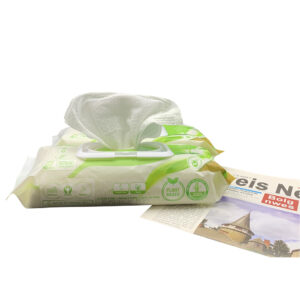The best wet wipes are designed to address concerns related to allergic reactions or sensitivities through careful formulation and selection of ingredients.
Here are several ways in which these wipes aim to minimize the risk of allergic reactions:
- Hypoallergenic Formulation: High-quality wet wipes are often formulated to be hypoallergenic, meaning they are less likely to cause allergic reactions. This is achieved by excluding common allergens and irritants from the ingredients.
- Gentle Ingredients: Best wet wipes use gentle and mild ingredients that are suitable for sensitive skin. This includes avoiding harsh chemicals, fragrances, and additives that may trigger allergies or irritate the skin.
- Fragrance-Free Options: Many wet wipes designed for sensitive skin or individuals prone to allergies are available in fragrance-free options. Fragrances can be a common source of skin irritation, and fragrance-free wipes reduce the risk of allergic reactions.
- Alcohol-Free: Alcohol can be drying and irritating to the skin, particularly for individuals with sensitive skin. Best wet wipes are often formulated without alcohol to prevent skin dryness and discomfort.
- Dermatologist-Tested: Some brands conduct dermatologist tests to ensure that their wet wipes are safe for use on various skin types, including sensitive skin. Dermatologist-tested products provide an added layer of assurance regarding skin safety.
- pH-Balanced: Wet wipes that are pH-balanced are designed to match the natural pH of the skin. This helps maintain the skin’s natural protective barrier and reduces the likelihood of irritation or allergic reactions.
- No Harsh Chemicals: Best wet wipes exclude harsh chemicals such as parabens, sulfates, and phthalates that may cause skin irritation or allergic responses. best wet wipes Opting for wipes with a minimal and natural ingredient list can be beneficial for sensitive skin.
- Allergen-Free Materials: The materials used in the wipes, including the fabric or substrate, are chosen to be allergen-free. This helps minimize the risk of skin reactions when the wipes come into contact with the skin.
- Sensitive Skin Variants: Some brands specifically market wet wipes for sensitive skin, addressing the unique needs of individuals prone to allergies. These variants often undergo additional testing to ensure compatibility with sensitive skin.
- Individual Packaging: Wet wipes that come individually packaged help prevent contamination and preserve the integrity of the wipes. This can be particularly important for individuals with sensitivities, as it reduces the risk of exposure to external irritants.
It’s important for individuals with known allergies or sensitivities to carefully read product labels and choose wet wipes that are explicitly designed for sensitive skin. Conducting a patch test before widespread use can also help identify any potential adverse reactions. Always consult with a healthcare professional if there are concerns about allergies or skin sensitivities.
